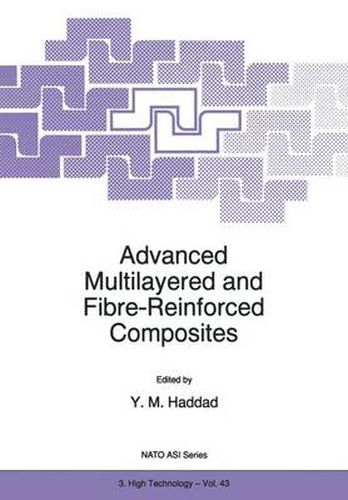Readings Newsletter
Become a Readings Member to make your shopping experience even easier.
Sign in or sign up for free!
You’re not far away from qualifying for FREE standard shipping within Australia
You’ve qualified for FREE standard shipping within Australia
The cart is loading…






This title is printed to order. This book may have been self-published. If so, we cannot guarantee the quality of the content. In the main most books will have gone through the editing process however some may not. We therefore suggest that you be aware of this before ordering this book. If in doubt check either the author or publisher’s details as we are unable to accept any returns unless they are faulty. Please contact us if you have any questions.
There are new and emergent technologies - in the aerospace industry, advanced civil and mechanical structures, smart materials, biomaterials, microelectronics - which demand materials with particular response characteristics that cannot be met by conventional, monolithic systems. Composite materials, including laminated and fibre-reinforced systems, play significant roles in many scientific and engineering realms, primarily due to their unique physical and mechanical response characteristics, such as specific strength, fracture toughness, corrosion and wear resistance. These characteristics can be enhanced by the ability of the materials scientist and engineer to tailor the microstructure to suit the imposed working conditions. In this text researchers present the late 1990s advances in the areas of ceramic, metallic and polymeric composite systems, including new classes of ceramic composites. The book emphasizes the significance of local deformation effects and the principles and approaches of advanced experimental mechanics in the service of modern technology. There is a comprehensive treatment of functionally-graded materials and the various approaches to modelling the mechanical behaviour of multi-phase solids. The unified and comprehensive treatment means that the book can be used as a text for science and engineering students from senior undergraduate level upwards. It also forms a comprehensive reference for scientists and engineers involved in the design, processing and application of composite materials.
$9.00 standard shipping within Australia
FREE standard shipping within Australia for orders over $100.00
Express & International shipping calculated at checkout
This title is printed to order. This book may have been self-published. If so, we cannot guarantee the quality of the content. In the main most books will have gone through the editing process however some may not. We therefore suggest that you be aware of this before ordering this book. If in doubt check either the author or publisher’s details as we are unable to accept any returns unless they are faulty. Please contact us if you have any questions.
There are new and emergent technologies - in the aerospace industry, advanced civil and mechanical structures, smart materials, biomaterials, microelectronics - which demand materials with particular response characteristics that cannot be met by conventional, monolithic systems. Composite materials, including laminated and fibre-reinforced systems, play significant roles in many scientific and engineering realms, primarily due to their unique physical and mechanical response characteristics, such as specific strength, fracture toughness, corrosion and wear resistance. These characteristics can be enhanced by the ability of the materials scientist and engineer to tailor the microstructure to suit the imposed working conditions. In this text researchers present the late 1990s advances in the areas of ceramic, metallic and polymeric composite systems, including new classes of ceramic composites. The book emphasizes the significance of local deformation effects and the principles and approaches of advanced experimental mechanics in the service of modern technology. There is a comprehensive treatment of functionally-graded materials and the various approaches to modelling the mechanical behaviour of multi-phase solids. The unified and comprehensive treatment means that the book can be used as a text for science and engineering students from senior undergraduate level upwards. It also forms a comprehensive reference for scientists and engineers involved in the design, processing and application of composite materials.